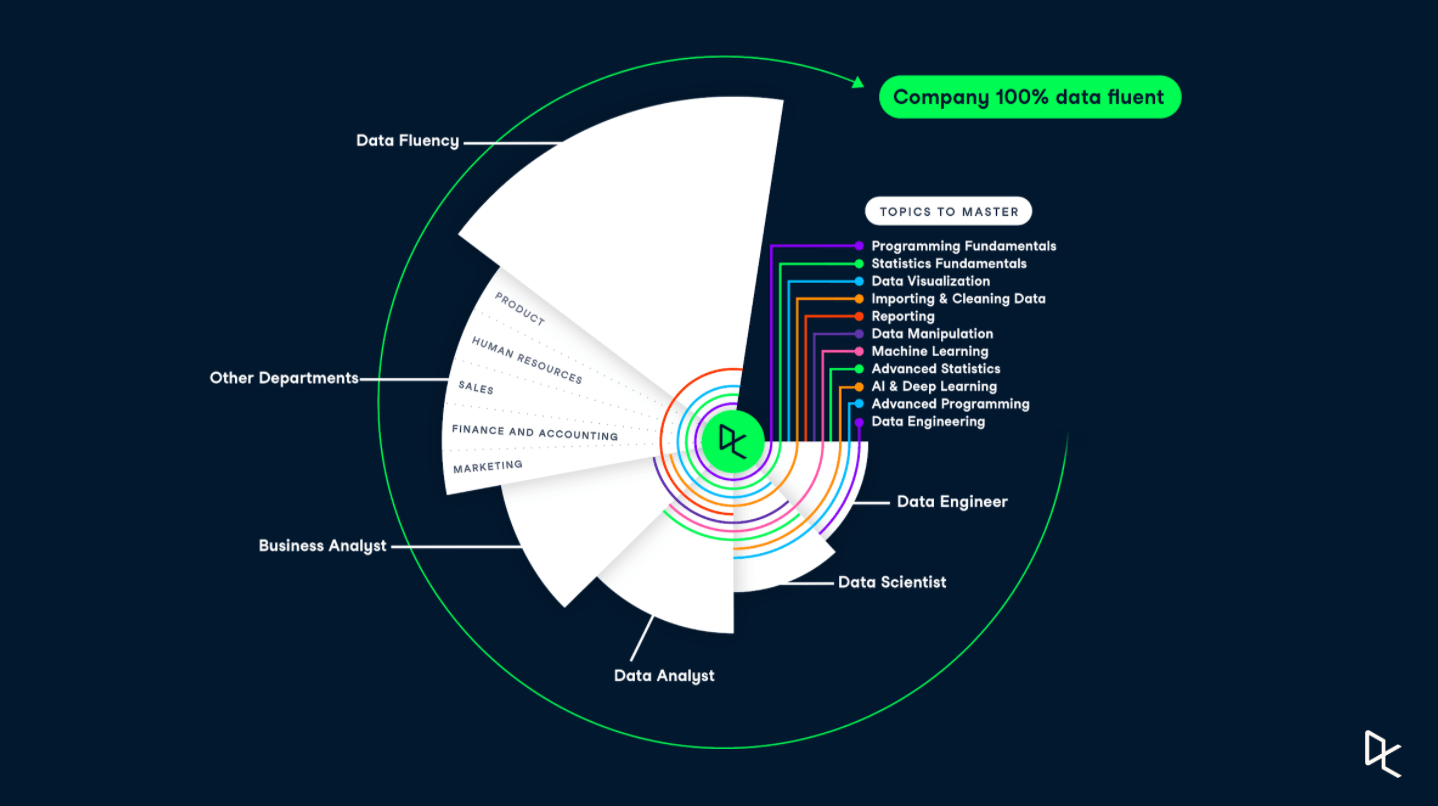Why Data Upskilling is the Backbone of Digital Transformation
Scaling organization-wide data fluency training is not an easy task. Learn how to scale your data program and ensure the success of your digital transformation initiatives.
Sep 2020 · 5 min read
Topics
RelatedSee MoreSee More
blog
Digital Upskilling Strategies for Transformative Success
Explore the power of digital upskilling in achieving transformative success and bridging the skills gap for a future-ready workforce.
Adel Nehme
7 min
blog
Eight Personas Found in Every Data-Driven Organization
Scaling data fluency learning programs successfully is no small feat. Learn about data personas and how a persona-driven methodology can help you scale your data training program.
Adel Nehme
5 min
blog
The Data Literacy Imperative: Why Upskilling in Data is Essential for Your Career
Discover the importance of data literacy for your career growth, job market potential, and societal impact. Learn how to upskill in data and stay ahead in the competitive professional landscape.
Matt Crabtree
7 min
blog
Data Fluency in 2021
DataCamp is hosting a monthly webinar in series in 2021 focused on scaling data science and building organization-wide data fluency with our IPTOP Framework.
DataCamp Team
4 min
blog
Achieving Organizational Data Fluency with IPTOP
The blueprint for ramping your organization’s data maturity from data reactive to data scaling, data progressive, and data fluent.
Travis Tang
7 min
blog
Why Your Digital Transformation Will Fail if You Don’t Have a Data Strategy
Digital transformation starts and ends with data.
Joyce Chiu
7 min


